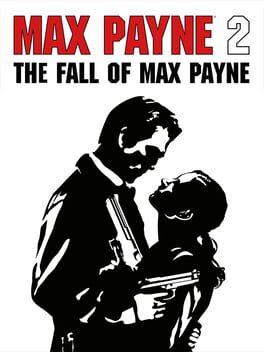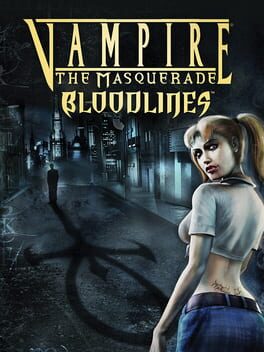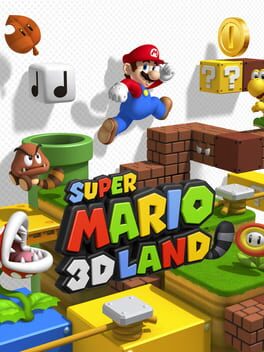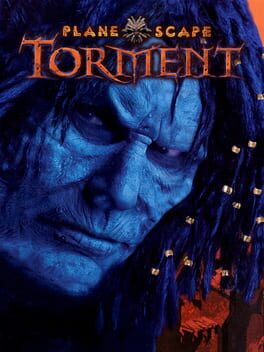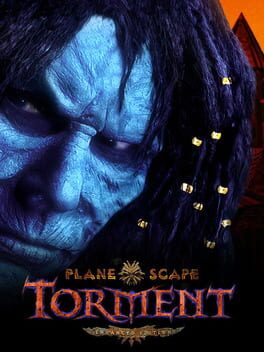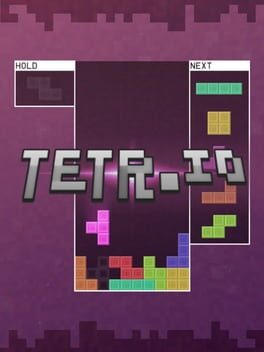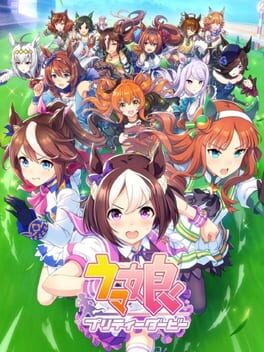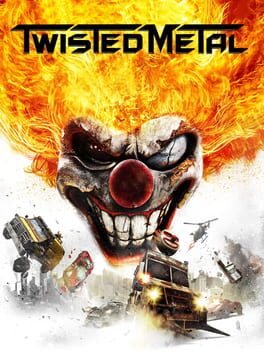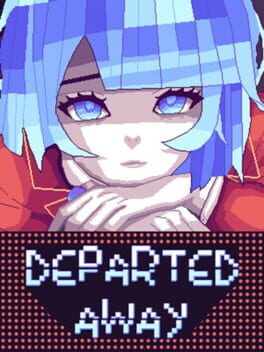senuzulmeyeter14
218 Reviews liked by senuzulmeyeter14
Max payne 2: Yiğidin yalnızlığı
-Max abi?
+Yeah its me Max and we gotta problem
-Problem? Ne problemi abi?
+You kill me without saving the game and it wears me out to start all over again
-Abi anlıyorum da vallaha konuşamıyorum ya yoksa ne dediğini anlıyorum yani
(young man understood but couldn't speak)
+What's wrong with you kid?
-Abi işin yokaa otursana konuşalım 2 dakika
(Mona was waiting me but I should have listened to the kid "Max where are you")
-Max abi, abi ben aslında seni kaydetmeyi unutmuyorum ben seni oynadıkça hayattaki bütün dertlerimi unutuyorum abi ve her seyden önce yalnızlığımı unutuyorum artık umudum kalmadı ve biliyor musun sen benim en iyi arkadaşımsın abi
(I didnt understand what he said but i was feeling it)
+Remember boy, hope is a good thing maybe the best of things and no good things ever dies
-Max abi?
+Yeah its me Max and we gotta problem
-Problem? Ne problemi abi?
+You kill me without saving the game and it wears me out to start all over again
-Abi anlıyorum da vallaha konuşamıyorum ya yoksa ne dediğini anlıyorum yani
(young man understood but couldn't speak)
+What's wrong with you kid?
-Abi işin yokaa otursana konuşalım 2 dakika
(Mona was waiting me but I should have listened to the kid "Max where are you")
-Max abi, abi ben aslında seni kaydetmeyi unutmuyorum ben seni oynadıkça hayattaki bütün dertlerimi unutuyorum abi ve her seyden önce yalnızlığımı unutuyorum artık umudum kalmadı ve biliyor musun sen benim en iyi arkadaşımsın abi
(I didnt understand what he said but i was feeling it)
+Remember boy, hope is a good thing maybe the best of things and no good things ever dies
Q: What's your favorite track from Bloodlines? I was listening to the Chinatown theme earlier.. so good!
Rik Schaffer: Hollywood Hub, wrote it a day after being released from jail. I was in the worst depression of my life, it captured it.
Rik Schaffer: Hollywood Hub, wrote it a day after being released from jail. I was in the worst depression of my life, it captured it.
Super Mario 3D Land
2011
Planescape: Torment
1999
My journey across The Planes has taken me to places that most men believe exist only in the realm of thought. These places I travelled to, the people I met, and the conversations I had fundamentally changed me as a person. I don’t fully know how, but regardless, I know some sort of change occurred. Perhaps writing about my experience with Planescape will help me better understand these changes and the person I am today.
When I was 14, I discovered Planescape: Torment, and while I thought the game was awesome, I could never really engage with the questions the game posed to me. I mean, how could I? What would the question “What can change the nature of a man?” mean to a 14-year-old who was only beginning to grapple with the concept of its own being? Looking back, it meant nothing to me. Now that I am an adult, however, the question means much more to me. Part of me is ashamed to admit I haven’t always been a ‘good’ person. Learning to be kind, understanding, mature, and responsible took me many years of struggling and hardship to achieve. Even today, I still struggle with this, but through that struggle, I came to learn more about myself and my nature. I can’t fully codify into words what my “nature” or “self” are because they are concepts that exist beyond language. Language can at times be limiting, so I look to art to help me look inward and better conceptualise these thoughts and feelings. I feel as though Planescape stirred the part of my soul that sought these answers, and despite it not giving me concrete answers, I feel satisfied with the new questions it posed to me. To me, good art never seeks to speak for the reader but instead provides them with the tools necessary to create subjective meaning from the experience they have with it. I believe Planescape does this quite well; I’d even go so far as to argue that it fully agrees with me here. When The Nameless One is posed the question, “What can change the nature of a man?” the game does not have him provide a concrete answer to the player. Instead, we are left with the game giving us the tools necessary to begin constructing our own answer to that question as the credits roll. Currently, I don't have an answer to that question, and I'm not sure if I will even have one a decade from now, but I'm okay with that. Part of growing up meant that I had to learn to be content with not always having an answer for everything; perhaps not every question needed an answer.
There’s more I could write, but perhaps it’s best that some things remain unwritten. I would love to endlessly navel-gaze, but that wouldn’t do me or you, the reader, any good. I apologise to anyone here who expected a formal review and was met instead by my self-indulgent introspection. There's really not much I can say about Planescape that hasn't already been said; it's an awesome ass game, and it deserves the reputation it has made for itself, enough said.
Anyways, I’d like to end this short write-up by saying that if you haven’t already played Planescape: Torment, you owe it to yourself to take that journey across The Planes. Sigil is known as the ‘City of Doors’, after all, so why don’t you look inside and see where one of them takes you?
When I was 14, I discovered Planescape: Torment, and while I thought the game was awesome, I could never really engage with the questions the game posed to me. I mean, how could I? What would the question “What can change the nature of a man?” mean to a 14-year-old who was only beginning to grapple with the concept of its own being? Looking back, it meant nothing to me. Now that I am an adult, however, the question means much more to me. Part of me is ashamed to admit I haven’t always been a ‘good’ person. Learning to be kind, understanding, mature, and responsible took me many years of struggling and hardship to achieve. Even today, I still struggle with this, but through that struggle, I came to learn more about myself and my nature. I can’t fully codify into words what my “nature” or “self” are because they are concepts that exist beyond language. Language can at times be limiting, so I look to art to help me look inward and better conceptualise these thoughts and feelings. I feel as though Planescape stirred the part of my soul that sought these answers, and despite it not giving me concrete answers, I feel satisfied with the new questions it posed to me. To me, good art never seeks to speak for the reader but instead provides them with the tools necessary to create subjective meaning from the experience they have with it. I believe Planescape does this quite well; I’d even go so far as to argue that it fully agrees with me here. When The Nameless One is posed the question, “What can change the nature of a man?” the game does not have him provide a concrete answer to the player. Instead, we are left with the game giving us the tools necessary to begin constructing our own answer to that question as the credits roll. Currently, I don't have an answer to that question, and I'm not sure if I will even have one a decade from now, but I'm okay with that. Part of growing up meant that I had to learn to be content with not always having an answer for everything; perhaps not every question needed an answer.
There’s more I could write, but perhaps it’s best that some things remain unwritten. I would love to endlessly navel-gaze, but that wouldn’t do me or you, the reader, any good. I apologise to anyone here who expected a formal review and was met instead by my self-indulgent introspection. There's really not much I can say about Planescape that hasn't already been said; it's an awesome ass game, and it deserves the reputation it has made for itself, enough said.
Anyways, I’d like to end this short write-up by saying that if you haven’t already played Planescape: Torment, you owe it to yourself to take that journey across The Planes. Sigil is known as the ‘City of Doors’, after all, so why don’t you look inside and see where one of them takes you?
Tetr.io
TBD
NBA 2K24
2023
Milk Pot
2010
Twisted Metal
2012
Departed Away
2024
Silent Hill 2
2001
Eşsiz anlatım zekasına sahip olan ve bugün olduğu gibi yıllardır da akıllarda yer etmiş bir video oyunu varsa o da kesinlikle Silent Hill 2'dir. Tahmin edilmesi kolay olduğu üzere Silent Hill'de hiçbir şey şansa bırakılmaz. Etkiler, ana karakterlerden başlayarak kitle kültüründe de çizim ve referansların yanı sıra çoklu ve derin anlamlar taşır. Tek bir deneyim size önemli ayrıntıların ve önemli olay örgüsünün çoğunu sağlarken, kimsenin hikayeyi ve tüm inceliklerini tam olarak sindirmesi için yeterli olmaya yüzde yüze yakın bile değildir.Elbette "buzdağının sadece görünen kısmı" ifadesini duymuşsunuzdur. Ayrıca, üst kısmı toplam kütlesinin %10'unu veya daha azını oluşturan, geri kalanı ise altında gizli olan bir buzdağının yüzeyin hem üstünde hem de altında nasıl göründüğünün bir fotoğrafını gördünüz mü? Sevimsiz veya klişe geliyorsa beni bağışlayın, ancak Silent Hill 2'nin olay örgüsüne kıyasla tam anlamıyla mükemmel bir benzetme. Buzdağının yüzeyin üzerindeki ucunu görmüş olabilirsiniz, ancak bu olay örgüsüne yalnızca giriş niteliğindedir. Bir başlangıç noktasıBununla birlikte, yalnızca bildiklerimizi veya gözlem yoluyla bir araya toplayabildiklerimizi hesaba katsak bile, hala ortaya çıkarılacak bir sürü akıllara durgunluk veren gerçekler ve incelikler var.
Ama kasabada bir sorun mu var yoksa içinden geçenlerin zihni mi? Ernest, alt senaryoda Maria tarafından sorulduğunda bu soruya anlayışlı bir bakış sunuyor.
"Bu akıl hastanesinde yalnız kalmak mı istiyorsun?"
"Evet, kesinlikle. Ama deli olanın bu kasaba olduğunu nasıl söyleyebilirsin? Belki de deli olan biziz. İkimiz de... umutsuzca deliyiz."
Kesinlikle açık olan şey, Silent Hill'in ruh çekme gücüne sahip olduğu ve sorunlu zihinlere ulaşabildiğidir.
Ama kasabada bir sorun mu var yoksa içinden geçenlerin zihni mi? Ernest, alt senaryoda Maria tarafından sorulduğunda bu soruya anlayışlı bir bakış sunuyor.
"Bu akıl hastanesinde yalnız kalmak mı istiyorsun?"
"Evet, kesinlikle. Ama deli olanın bu kasaba olduğunu nasıl söyleyebilirsin? Belki de deli olan biziz. İkimiz de... umutsuzca deliyiz."
Kesinlikle açık olan şey, Silent Hill'in ruh çekme gücüne sahip olduğu ve sorunlu zihinlere ulaşabildiğidir.
Elden Ring
2022
The fallen leaves tell the story of an arborescent world order decaying from the inside out. The Land Between is slowly cracking away at the seams as its twilight draws ever closer.
This is the world that FromSoftware shows the player, a world in which we are left to pick up fragments of a bygone past piece by piece as we fight against the forces that seek to uphold the ways of old.
This world we are shown is a not-so-subtle metaphor for our own world, a world that so desperately clings onto the ideas of old (capitalism) in the hopes their old world order won’t buckle to the pressure of history and the forces of progress itself, that force being you, the Tarnished.
Elden Ring is a game of stagnation, a game that challenges the very essence of the series it originates from, a game that seeks to take the Soulsborne formula to its logical end point and burn it all down in order to start anew. In some ways it succeeds at doing this, in other ways it doesn’t, and I think the ways it succeeds at this overshadow even its most glaring failures.
The gameplay here is refined to the best it can be; it feels as though every weapon was meticulously crafted to allow for some of the most varied and unique build variety I’ve seen in a Souls game. The open-world especially lends well to enhancing the variety of Elden Ring due to its non-linear nature, which allows for some of the most freedom in exploration and gameplay I’ve seen in a modern AAA title. I sometimes feel that the gameplay, however, was so streamlined and improved to such a degree it can sometimes feel sterile in a sense. I miss the roughness and edge to the older Souls games which I feel isn't present in From's newer games. There’s times, however, where this freedom can become overwhelming and lead to parts of the world feeling either bloated with meaningless content (excess copy-and-paste bosses and dungeons) or completely barren, a problem that could have been easily remedied if the map itself was slightly reworked to be a tad bit smaller. I feel as though a rework of the map that makes it more compact and tight would have greatly benefited Elden Ring and led to the game feeling less unbalanced in the way it presented its content. Even in spite of all that, there’s a genuine understated beauty to the world of Elden Ring that I cannot deny. This world is beautiful at times, and even in its rotting and decaying state, there are still shreds of beauty left that are worth holding on to.
Moving on from the gameplay, I feel that Elden Ring truly shines narratively and thematically the most. One may be quick to write Elden Ring off as a rehash of Souls, which to an extent is a take that isn’t without its merit. I, however, believe that it’s continuity with and rupture away from Soulsborne narrative similarities that this game truly gets interesting; it feels like a meta-self-examination and final nail in the coffin for these ideas. Elden Ring has many similarities to Dark Souls; often times, the main narrative similarity people point to is the concept of a dying world held in stasis that we are forced to decide the fate of, but what Elden Ring does with this concept is far more brilliant than people give it credit for.
Elden Ring is not just taking Souls narrative and gameplay concepts to their logical end points; it’s also burning them down. Elden Ring is Miyazaki’s pivotal turning point, where he realises that this formula is not going to be sustainable forever and that it’s necessary to accelerate these ideas to their end points and then burn it all down (symbolically done through the burning of the Erdtree).
To further understand the significance of the Erdtree, I must draw upon the work of Gilles Deleuze and Félix Guattari.
In their follow-up book to Anti-Œdipus: Capitalism and Schizophrenia, A Thousand Plateaus, Deleuze and Guatarri describe two forms of organisation: rhizomatic (non-hierarchical) and arborescent (hierarchical). These two forms of organisation are obviously references to plants, with arborescence referring to trees with a central root system and trunk and rhizomes referring to potatoes and their decentralised, free-flowing root system, to put it simply. In A Thousand Plateaus, Deleuze uses these plant metaphors as a way to explain and illuminate the flaws of certain organisational structures and forms, with arborescent structures having one key flaw: their dependency on each other. If one part of the structure dies, rots, breaks, etc., the rest will follow suit, as they are dependent on each other.
Now, with this understanding of arborescence, we can tie it to the Erdtree and its functionality within the narrative of Elden Ring. In Elden Ring, the Erdtree serves as a monument that represents and upholds the old world; it maintains order and allows the world to continue as it is, but if this order is threatened or destroyed, the very same old world order it once upheld will crumble soon thereafter. It is through the actions of The Tarnished that we are able to light this arborescent structure ablaze and accelerate history forward (I would use this as a jumping-off point to explain Mark Fisher’s idea of accelerationism (not to be confused with Landian accelerationism)and how it ties into the story of Elden Ring, but this review is already too long as is).
Elden Ring is a story of stagnation and rebirth.
I ultimately see Elden Ring and, more specifically, its Frenzied Flame ending as a rejection and rupture away from the ideas of the old and an embrace of more radical new forms and ideas, while also staying in continuity with the general style of Soulsborne. For all of its flaws, of which this game has many, I firmly believe it’s a bold new step in the right direction. I believe that Elden Ring is not only the end of an era, but a new beginning and continuation into a new, radical, and free era of expression and creativity from Miyazaki and his team.
This is the world that FromSoftware shows the player, a world in which we are left to pick up fragments of a bygone past piece by piece as we fight against the forces that seek to uphold the ways of old.
This world we are shown is a not-so-subtle metaphor for our own world, a world that so desperately clings onto the ideas of old (capitalism) in the hopes their old world order won’t buckle to the pressure of history and the forces of progress itself, that force being you, the Tarnished.
Elden Ring is a game of stagnation, a game that challenges the very essence of the series it originates from, a game that seeks to take the Soulsborne formula to its logical end point and burn it all down in order to start anew. In some ways it succeeds at doing this, in other ways it doesn’t, and I think the ways it succeeds at this overshadow even its most glaring failures.
The gameplay here is refined to the best it can be; it feels as though every weapon was meticulously crafted to allow for some of the most varied and unique build variety I’ve seen in a Souls game. The open-world especially lends well to enhancing the variety of Elden Ring due to its non-linear nature, which allows for some of the most freedom in exploration and gameplay I’ve seen in a modern AAA title. I sometimes feel that the gameplay, however, was so streamlined and improved to such a degree it can sometimes feel sterile in a sense. I miss the roughness and edge to the older Souls games which I feel isn't present in From's newer games. There’s times, however, where this freedom can become overwhelming and lead to parts of the world feeling either bloated with meaningless content (excess copy-and-paste bosses and dungeons) or completely barren, a problem that could have been easily remedied if the map itself was slightly reworked to be a tad bit smaller. I feel as though a rework of the map that makes it more compact and tight would have greatly benefited Elden Ring and led to the game feeling less unbalanced in the way it presented its content. Even in spite of all that, there’s a genuine understated beauty to the world of Elden Ring that I cannot deny. This world is beautiful at times, and even in its rotting and decaying state, there are still shreds of beauty left that are worth holding on to.
Moving on from the gameplay, I feel that Elden Ring truly shines narratively and thematically the most. One may be quick to write Elden Ring off as a rehash of Souls, which to an extent is a take that isn’t without its merit. I, however, believe that it’s continuity with and rupture away from Soulsborne narrative similarities that this game truly gets interesting; it feels like a meta-self-examination and final nail in the coffin for these ideas. Elden Ring has many similarities to Dark Souls; often times, the main narrative similarity people point to is the concept of a dying world held in stasis that we are forced to decide the fate of, but what Elden Ring does with this concept is far more brilliant than people give it credit for.
Elden Ring is not just taking Souls narrative and gameplay concepts to their logical end points; it’s also burning them down. Elden Ring is Miyazaki’s pivotal turning point, where he realises that this formula is not going to be sustainable forever and that it’s necessary to accelerate these ideas to their end points and then burn it all down (symbolically done through the burning of the Erdtree).
To further understand the significance of the Erdtree, I must draw upon the work of Gilles Deleuze and Félix Guattari.
In their follow-up book to Anti-Œdipus: Capitalism and Schizophrenia, A Thousand Plateaus, Deleuze and Guatarri describe two forms of organisation: rhizomatic (non-hierarchical) and arborescent (hierarchical). These two forms of organisation are obviously references to plants, with arborescence referring to trees with a central root system and trunk and rhizomes referring to potatoes and their decentralised, free-flowing root system, to put it simply. In A Thousand Plateaus, Deleuze uses these plant metaphors as a way to explain and illuminate the flaws of certain organisational structures and forms, with arborescent structures having one key flaw: their dependency on each other. If one part of the structure dies, rots, breaks, etc., the rest will follow suit, as they are dependent on each other.
Now, with this understanding of arborescence, we can tie it to the Erdtree and its functionality within the narrative of Elden Ring. In Elden Ring, the Erdtree serves as a monument that represents and upholds the old world; it maintains order and allows the world to continue as it is, but if this order is threatened or destroyed, the very same old world order it once upheld will crumble soon thereafter. It is through the actions of The Tarnished that we are able to light this arborescent structure ablaze and accelerate history forward (I would use this as a jumping-off point to explain Mark Fisher’s idea of accelerationism (not to be confused with Landian accelerationism)and how it ties into the story of Elden Ring, but this review is already too long as is).
Elden Ring is a story of stagnation and rebirth.
I ultimately see Elden Ring and, more specifically, its Frenzied Flame ending as a rejection and rupture away from the ideas of the old and an embrace of more radical new forms and ideas, while also staying in continuity with the general style of Soulsborne. For all of its flaws, of which this game has many, I firmly believe it’s a bold new step in the right direction. I believe that Elden Ring is not only the end of an era, but a new beginning and continuation into a new, radical, and free era of expression and creativity from Miyazaki and his team.
